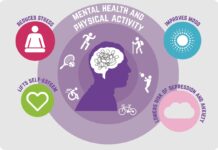
The field of counseling has experienced exponential growth in recent times, fueled by changing social needs, new research, and shifts in public policy. The US Bureau of Labor
Statistics reveal that job opportunities for mental health counselors are set to expand by 22% between 2021 and 2031. Pursuing a mental health counseling career can be a successful and rewarding undertaking, with many different career paths available to graduate professionals.
Here is a look at the work opportunities available to mental health counselors with advanced degrees in clinical mental health counseling.
1. Clinical Counselor
You can become a licensed clinical counselor after earning a master’s in clinical mental health counseling. In this role, you work with other healthcare professionals and groups to assess and find remedies for mental, behavioral, and emotional disorders impacting patients.
Clinical therapists counsel individuals or groups concerning their psychological or emotional issues and observe clients to detect indications of abnormal mental or physical behaviors. They may also address client concerns related to career or educational choices.
2. Employee Assistance Program Counselor
An employee assistance program (EAP) is a voluntary program that helps employees facing mental and emotional issues manage their problems. As an EAP counselor, you will work remotely or on-site as part of a team offering 24/7 support. Currently, 97% of American companies with more than 5,000 employees have EAPs in their workforce. Many employers adopt these programs believing that if they take care of the mental health needs of their employees, productivity will rise and business costs will drop.

3. Addiction Counselor
Also known as a rehabilitation therapist, an addiction counselor offers counseling services and develops treatment plans for people who have substance abuse issues. As a substance abuse counselor, you will probably work in a hospital, serving both inpatient and outpatient units. You can also work in rehabilitation day clinics, private practices and other healthcare settings.
The primary role of an addiction counselor is to help patients find strategies to manage their mental health conditions without using illicit substances. Many advanced counseling programs have specialization options for students to focus their competencies on this clinical mental health counseling segment.
4. Geriatric Counselor
Geriatric counselors work with the elderly in various settings, including nursing homes, hospitals, retirement homes and community senior centers. Your role is to help clients manage retirement transition or end-of-life matters. You may also help clients process the loss of a spouse, reduced independence or a deteriorating health issue.
5. Marriage and Family Therapists
As their name suggests, marriage and family counselors help people manage and overcome problems with their family and other relationships. In a marriage and family therapy session, the focus of the treatment isn’t just one individual, even when a single person is the problem. The treatment is geared toward the relationship in which the person is embedded.
Therefore, these therapists often work with one couple, a whole family unit, or a few members of a family at a time. As a family therapist, you will strive to help your patients navigate recurring issues, build relationships and strengthen communication skills.

6. Wellness Counselor
A wellness counselor’s role is similar to that of a traditional counselor. However, wellness counselors help clients achieve specific and measurable goals in their professional or personal lives. The goals may involve anything from quitting smoking or losing weight to reducing stress or mastering the art of self-care.
A wellness coach offers tailored tools and strategies clients can use to achieve specific goals. In this role, you will work with individual clients or within a large institution such as a college, school or corporation.
7. Counseling Administrator
An online master’s in clinical mental health counseling allows you to take on leadership roles as an administrator in a clinical setting, government agency, nonprofit, university or foundation. The online MA in Clinical Mental Health Counseling program at American International College exposes you to a comprehensive curriculum, equipping you with the expertise and compassion you need to support individuals’ well-being as a proficient mental health counselor. The knowledge you acquire through this program can be valuable in succeeding in this field.
The roles and duties of counseling administrators vary and may include running the day-to-day activities of a counseling facility, offering mentorship to staff, leading training and organizing professional development opportunities. This segment may also require you to build and foster partnerships with other stakeholders in the community.

8. Community Health Educator
Community health educators use their skills to promote wellness for individuals and communities. Key responsibilities include assessing the community’s needs, connecting individuals with healthcare services, carrying out community outreach, and advocating for crucial health causes. Community health educators are regularly needed to complement the roles of other healthcare professionals.
9. Sports Counselor
Sports counseling is a highly specialized field of work in which counselors focus on the well-being, mental functioning, and physical performance of athletes. Sports counselors can work in athletic departments in colleges and universities or for professional sports teams or leagues, among many other settings. They teach athletes techniques for overcoming the stress and pressure they experience during a competition.
10. Military Personnel Counselors
Military personnel counselors can work in a military setting as either civilians or official members. As a counselor in this position, you will likely work with various clients, including soldiers with substance abuse problems, war heroes and veterans, soldiers battling PTSD, and other scenarios.
You will be caring for service members who tackle challenges on the battlefront and away from work. You will use your experience and skills to support soldiers emotionally as they navigate various challenges. An advanced degree in clinical mental health counseling equips you with the knowledge and skills you need to improve mental health outcomes in the military.

11. Rehabilitation Counselor
A rehabilitation counselor blends their knowledge of disability treatment with mental health treatment to guide patients through a rehabilitation process. A master’s degree in clinical mental health counseling can help you work with disabled people, including those battling congenital disabilities, drug addiction and mental health conditions. Your primary goal is to train patients to be independent and productive.
Mental Health Counseling Has an Excellent Job Outlook
Mental health counseling is a varied field that offers diverse career opportunities. There is currently a critical need for mental health counselors as the country battles surging cases of mental health disorders. As you consider a career in counseling, it is essential to explore the opportunities that an advanced degree can open up for you.











